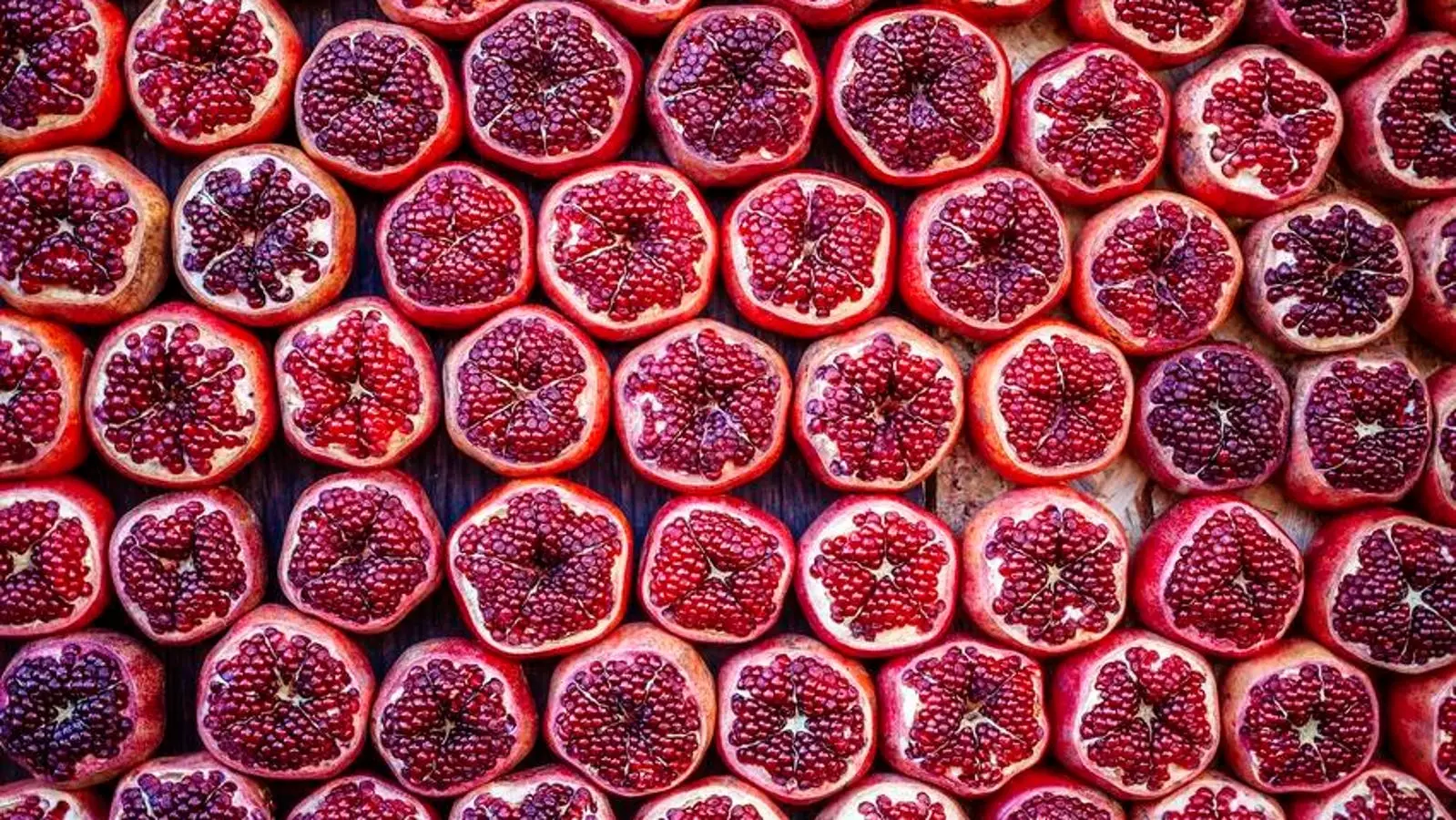Once celebrated as a mystical symbol in ancient Mediterranean cultures, the pomegranate has seamlessly transitioned into the spotlight of contemporary health trends and culinary innovations. With a projected market value that is expected to soar to $10.6 billion by 2033, the fruit that has long been cherished as a source of life and fertility is now at the forefront of the gourmet food revolution. In an age where the aesthetic allure of food takes precedence, the pomegranate shines not only for its vibrant ruby-red hue but also for its numerous health benefits and surprising versatility. Its growing popularity, particularly on platforms like TikTok, illustrates a fascinating intersection of tradition and modernity, capturing the attention of food enthusiasts and health-conscious consumers alike.
Azerbaijan: The Unsung Hero of Pomegranate Production
While nations such as India and Iran might dominate the global pomegranate market with sheer volume, Azerbaijan offers a unique narrative that centers not solely on quantity but on quality, heritage, and distinct flavors. The Azerbaijani pomegranate, known locally as ‘nar’, is emblematic of the country’s cultural identity. During my own explorations of Azerbaijan in November 2024, I found myself captivated by a region that carried the imprint of conflict yet thrived symbolically and literally under the resilience of its pomegranate trees. In Nagorno-Karabakh, amidst the scars of war, I witnessed these magnificent trees flourishing, representing not just survival, but an indomitable spirit and a sense of regeneration.
The Goychay region has emerged as Azerbaijan’s pomegranate capital, celebrated for its rich soil and microclimate ideal for cultivating more than 60 indigenous varieties of this fascinating fruit. Feride Buyuran, a local culinary expert, eloquently describes the agricultural landscape of Goychay as a “blissful paradise for pomegranate enthusiasts,” where the complexities of flavor and texture find a welcoming home. Unlike the factory-farmed produce of larger exporters, Azerbaijani farmers prioritize flavor and quality over quick harvests, resulting in unparalleled taste profiles that can range from sweet to tart, and visually stunning seed colors that entice the palate.
Cultural Significance Beyond the Plate
The significance of the pomegranate in Azerbaijan transcends mere sustenance; it embodies cultural values and social narratives deeply woven into the nation’s fabric. The fruit has earned its accolades as a symbol of abundance and prosperity, often appearing in poetry, art, and traditional craftwork. The annual Goychay Pomegranate Festival, celebrated since 2006 and recognized by UNESCO as part of the Intangible Cultural Heritage of Humanity, serves as a vibrant reminder of how food can unify community and culture. This festivity pulsates with life and energy, showcasing everything from folk music and dance to culinary innovations that transform pomegranates into everything from savory dishes to sweet delicacies.
As consumers around the globe gravitate toward foods that tell a story, the pomegranate serves as a pathway to connect them with Azerbaijan’s rich cultural legacy. Food enthusiasts are increasingly interested in what they eat, from the origins of ingredients to the way they are produced. The nuances of Azerbaijani pomegranates allow consumers to savor not only their complex flavors but also the centuries of tradition behind each bite.
The Future of Azerbaijani Pomegranates in the Global Market
In January 2025, Azerbaijan celebrated a 35% increase in the export value of its pomegranates, achieving $2.02 million from 2,278 tons. Though these figures merely represent a fraction of the overall national production, they hint at a burgeoning global interest in artisanal, culturally resonant food products that move away from mass production toward authenticity.
This burgeoning demand for quality and value-added products—a trend reflected in the increasing visibility of organic and artisan-made goods—may serve Azerbaijan well in the coming years. The country’s vulnerability to climate change may paradoxically position it as a sanctuary for high-quality pomegranate cultivation as other producing regions struggle for consistency. The potential for growth extends beyond fresh fruit, opening avenues for exporting valuable commodities like pomegranate extracts and juices.
Final Thoughts
Azerbaijan’s pomegranates resonate deeply with consumers eager for not only health-boosting superfoods but also authentic experiences that engage with a rich narrative. As the world shifts toward an appreciation for quality and craftsmanship, the humble pomegranate, cultivated with care and steeped in cultural significance, stands poised to triumph in the ever-evolving marketplace of food trends. In an era prioritizing depth over mass appeal, Azerbaijan’s pomegranate may very well emerge as a standout contender, proving that even the smallest fruits can bring forth the richest flavors and the most compelling stories.


Leave a Reply